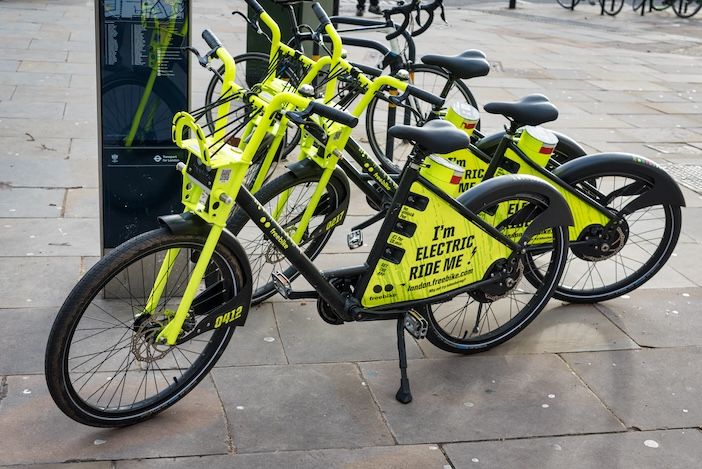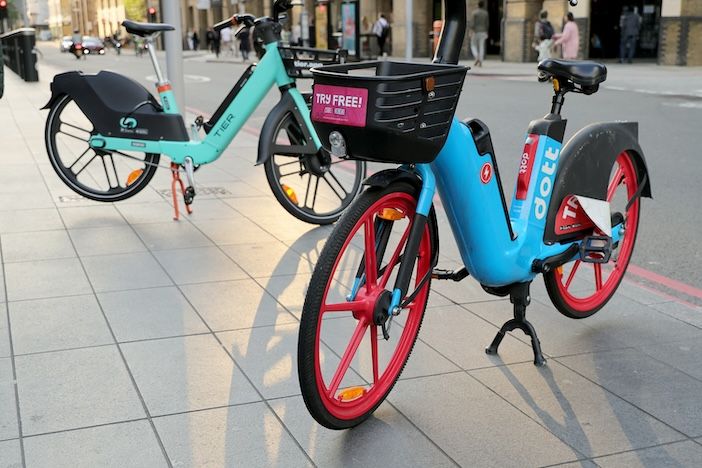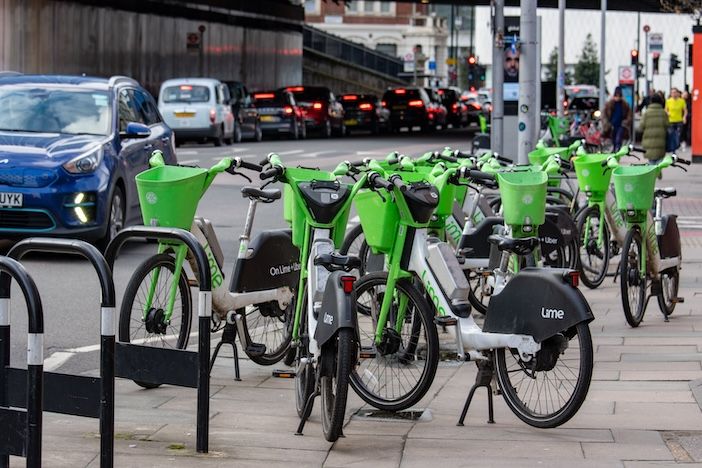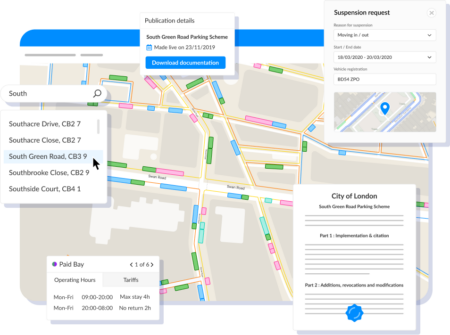Transport for London (TfL) has updated enforcement policy for dockless, electric micromobility services, alongside significant investment in new parking spaces.
The approach will predominantly focus on dockless e-bikes, as London’s e-scooter trial already requires parking in bays, with controls in place to ensure compliance.
A particular problem in London is that on TfL’s network of red routes – some the busiest roads in the capital – rental e-bikes are often being parked on the pavement in a way that negatively impacts pedestrian and wheelchair access.
Now, TfL has written to operators to ask them to collaborate on its new enforcement policy for e-bikes. TfL will also be working closely with London’s councils to improve parking compliance.
The new policy sets out that TfL will consider taking action against operators who allow their bikes to be parked outside of designated places on red routes and on TfL land, which includes areas such as station forecourts and bus garages. Rental e-scooters are already required to park in bays, and the new policy will bring e-bikes closer in line with this.

A proportionate and pragmatic approach will be taken to any enforcement activity, initially focused on the most problematic areas where large numbers of poorly parked bikes are causing access or safety issues.
Operators are ultimately responsible for ensuring their bikes are deployed and parked bikes appropriately. Any enforcement action would be targeted towards operators who do not ensure these rules are complied with, but TfL is also encouraging all dockless e-bike users to consider the impact of their parking on other road users and comply with local parking requirements.
To ensure that dockless e-bike and e-scooter schemes can continue to play an important role in a safe and sustainable transport network, almost £1 million has been allocated this year to boroughs to fund 7,500 new parking spaces.
This is in addition to the 2,000 parking bays already delivered by boroughs. On red routes, TfL plans to deliver at least 800 spaces by next summer and is targeting a network of 3000 spaces by the end of 2026. The new enforcement policy, alongside investment in safe and appropriate parking, will help these services operate in a way that protects the rights of all Londoners to use and enjoy the capital’s streets.

“Rental e-bike and e-scooters are an important part of the capital’s transport network and we want to make sure they work for everyone,” says Claire Mann, TfL’s COO. “Our new approach to enforcement on our red routes, alongside investment in new parking spaces, will ensure that e-bikes and e-scooter services can continue to operate without impacting the ability of others to use and access the capital’s streets. We want to work alongside operators to enable this to happen and will continue to work with operators, boroughs and other partners to ensure all Londoners have access to a safe and sustainable transport network.”
“Dockless e-bikes play an important role in encouraging more people to choose sustainable modes of transport when travelling around the capital, but we know that poor e-bike parking can cause significant safety issues for some Londoners, particularly disabled and older people. In some instances they have become obstacles for pedestrians, particularly in busy parts of the capital,” says London’s walking and cycling commissioner Will Norman. “The Mayor’s million-pound investment into additional parking spaces, in conjunction with this scheme to ensure that vehicles are parked responsibly, will make London safer and more accessible for everyone. I look forward to working with councils, as well as e-bike operators on these improvements.”





